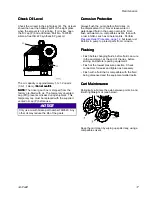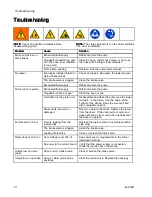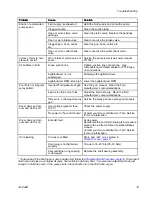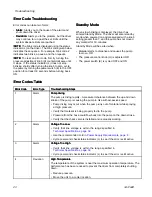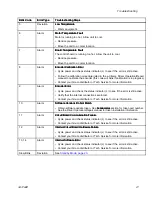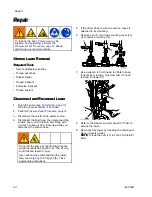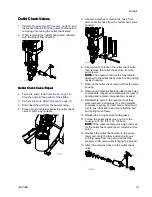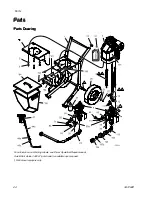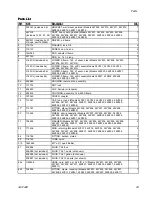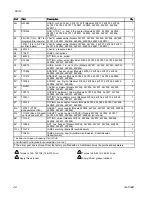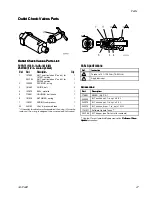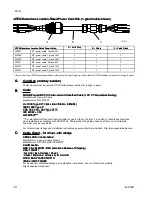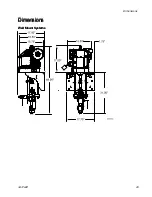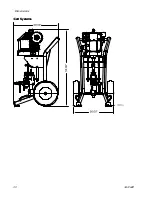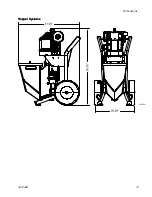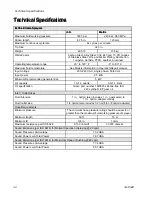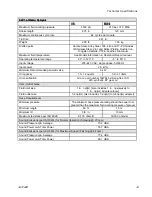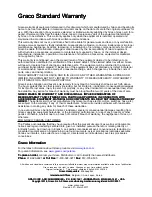
Troubleshooting
Error
Error
Error Code
Code
Code Troubleshooting
Troubleshooting
Troubleshooting
Error codes can take two forms:
• Alarm:
Alarm:
Alarm: Alerts you to the cause of the alarm and
shuts down the driver.
• Deviation:
Deviation:
Deviation: Alerts you to the problem, but the driver
may continue to run past the set limits until the
system absolute limits are reached.
NOTE:
NOTE:
NOTE: The blink code is displayed using the status
indicator (L) on the driver. The blink code given below
indicates the sequence. For example, blink code 2
indicates two blinks, a pause, and then repeats.
NOTE:
NOTE:
NOTE: To clear an error code, first try turning the
pressure adjustment knob (H) counterclockwise until
it stops. If the status indicator (L) does not stop
blinking shortly after turning the knob to zero, cycle
the power by turning the power switch (E) to the OFF
position for at least 30 seconds before turning back
ON.
Standby
Standby
Standby Mode
Mode
Mode
When slow blinking is displayed, the driver has
entered Standby Mode. The driver will enter standby
mode when powered on and pressurized with a knob
setting greater than 7, and the pump has not moved
any material for 30 minutes.
Standby Mode will be exited when:
• Material starts to dispense and causes the pump
to move, OR
• The pressure control knob (H) is adjusted, OR
• The power switch (E) is cycled OFF and ON
Error
Error
Error Codes
Codes
Codes Table
Table
Table
Blink
Blink
Blink Code
Code
Code
Error
Error
Error Type
Type
Type
Troubleshooting
Troubleshooting
Troubleshooting Steps
Steps
Steps
1
Alarm
Pump
Pump
Pump diving
diving
diving
The pump is diving rapidly. A pressure imbalance between the up and down
stroke of the pump is causing the pump to dive with excessive speed.
• Pump diving may occur when the pump runs out of material while spraying
at high pressure.
• Verify that material is being properly fed to the pump.
• Pressure from the hose could flow back into the pump on the down stroke.
• Verify that the check valve is installed and is properly working.
2
Alarm
Voltage
Voltage
Voltage Too
Too
Too Low
Low
Low
• Verify that line voltage is within the range specified in
Technical Specifications, page 32
.
• Use the recommended cord in
Power Supply Requirements, page 8
.
• Cycle power and check status indicator (L) to see if the error is still active.
3
Alarm
Voltage
Voltage
Voltage Too
Too
Too High
High
High
• Verify that line voltage is within the range specified in
Technical Specifications, page 32
.
• Cycle power and check status indicator (L) to see if the error is still active.
4
Deviation
High
High
High Temperature
Temperature
Temperature
The temperature of the system is near the maximum operation temperature. The
performance has been reduced to prevent the driver from completely shutting
down.
• Reduce pressure.
• Move the unit to a cooler location.
20
3A3164D












